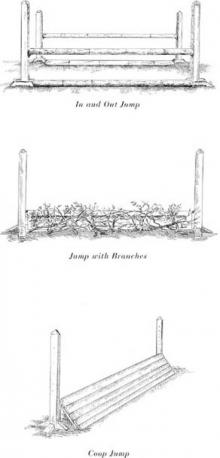- Home
- Jane Smiley
Private Life Page 5
Private Life Read online
Page 5
“I’m freezing.”
“Indeed! I hadn’t noticed a chill.” He waited for her, but she saw through her fingers that he looked at her curiously, as if her behavior were simply a phenomenon and had nothing to do with him. And, indeed, it did have nothing to do with him. But she had the suspicion that, were she to fall over in a solid frozen block of ice and expire right there, he would be unmoved except by the novelty of the situation. She put her hands back on the handlebars and pressed on, this time hurrying as much as she could with her long and flapping skirts. She said, “I have to keep going. It’s just there. We’re almost to the Larimers’.”
“Are we? I’ll be sorry to give up your company.” He neither smiled nor bent toward her in any way; she was so frantic by now that this remark seemed to her to have no meaning at all, to be launched onto the frigid air like a snowflake. But he exerted himself to keep up with her, and then they were at Mrs. Larimer’s gate, and she was fumbling with the latch. He didn’t help her, just held on to his staff and observed her. When she had gotten through the gate with the bicycle, he tipped his hat and said, “Well, it’s been a pleasure to meet you, Miss Mayfield. I admire your fortitude.”
She dropped the bicycle beside the path and ran up the steps to the porch. Charlotte, Mrs. Larimer’s hired girl, opened the door at once, and then it was all frostbite and tears and warmth and concern. After that occasion, she didn’t see Mr. Early (Captain Early, Dr. Early, she subsequently found out) for a very long time.
THE MARRIAGE took place—a morning wedding at Gentry Farm, with Beatrice in a dark-green velvet dress and Robert in a suit with a collar of the same dark-green velvet. Owing to the time of year, Lavinia and the Bells had decided that it would be better to have a small wedding in town followed by a larger party in St. Louis after the New Year, and their caution turned out to be justified—snow began falling during the afternoon reception at Mrs. Larimer’s. It was so thick that if the guests hadn’t left early it would have been impossible to get back to the farm. As it was, the horses pulling the carriage had to struggle the last quarter-mile, and Margaret and Elizabeth had to huddle down, covered over and suffocating with blankets, while John Gentry whipped the horses and urged them forward. Lavinia would not let the girls jump out and walk, because their dress boots were thin and the snow was already eight inches deep. Then they spent the days between the wedding and Christmas isolated at the farm, drinking tea and nursing John Gentry through a bout of catarrh. The weather continued cold and wet; only Lavinia went with Robert and Beatrice to the marriage celebration in St. Louis.
Margaret finally met Dora and the other Bells in the spring. Dora turned out to be a squat, plain girl with thin hair and nothing more to offer, Margaret thought at first, than a bicycle and a kind nature. But Dora seemed to take a great and flattering liking to Elizabeth and Margaret, incessantly seeking their advice and offering to take them places around town. She was far more sophisticated in her bringing up than they were, but, as Lavinia pointed out, she was the sort of unfortunate girl whose own mother never gets over her disappointment in what she has produced. There had been the nanny all the way from England, and now a boarding school in Des Peres. One night, while they were undressing for bed in the big house on Kingshighway, Lavinia remarked, “You girls can’t know how short your lives have been. From the mother’s point of view, first there is the infant, then, almost immediately, there’s the young woman. That’s how it seems.” She lowered her voice, though they were sitting by the fireplace in their own set of rooms, the door shut and everyone else gone to bed. “When a lady’s first concern is to preserve herself unchanged by the passage of time, it may be that the easier course is to simply forget the girl exists.”
But Mrs. Bell was kind to Margaret and Elizabeth, inviting them to stay for a month in the winter, and taking a special interest in Elizabeth. She and Elizabeth were the same height and built in a similar way, and one of Mrs. Bell’s fancies was to dress Elizabeth in her own old clothes, and to give certain pieces to her, on the understanding that Elizabeth would use her skills to remake these dresses and coats, preserving the fine goods but updating the style. John Gentry said, “Does she think the girl is going to have to sew for her living?” But Mrs. Bell acted more as if Elizabeth were her own sister than the sister of her son’s wife. The goods were beautiful, and Mrs. Bell, as befitted a St. Louis society woman, had hardly put any wear into them.
JOHN GENTRY died in a condition of some satisfaction. He was almost seventy-six. At the funeral, the minister said, “John Gentry entered the state of Missouri riding in the back of a wagon. A son of the South, he proved himself a patriot to the larger nation, and he earned the respect of both sides.” (“Well, he did that with his shotgun,” whispered Lavinia.) “He took care of his slaves and, after that, his servants and his workmen, his mules, his acres and his horses and his daughters, and his granddaughters. He sustained his connections with friends and relations on both sides of the conflict, and the same cannot be said for every Missourian of those days. In doing all of these things, he took good care of his soul. And so”—the minister sucked in a deep breath and lifted his eyes above those assembled in the pews—“we plan to meet John Gentry up yonder, where no doubt he has already been put in charge of something.” The congregation laughed and nodded, and afterward, many said of John Gentry that he was a generous man. To Margaret, his life seemed complete and all of a piece. The world had swirled around him, but he had done as he pleased and remained as evidently himself as a tree might, or a stone might. Lavinia and her sisters kept pronouncing his eulogy: “Well, Papa was always Papa, I’ll say that for him.”
Robert Bell took over the farm. What happened was entirely practical—Lavinia’s sisters all had lives of their own, in Hermann, Chicago, and West Branch, Iowa. The farm would not be sold or broken up, everyone agreed (either land prices were low and certain to rise, or they were high and destined to go higher—Margaret didn’t know which), and, furthermore, such a farm would virtually run itself, so efficient was the operation John Gentry had set in place. Therefore, Robert and Beatrice with their two little boys, Lawrence and Elliott, who had followed hard on the heels of the marriage, would live on the farm, being seen to by Alice. Lavinia, Elizabeth, and Margaret would move into the house in Darlington. Once installed there, Margaret understood without its being said that she was to parade herself, the blooming Elizabeth in tow, up and down Front Street, executing errands at the retail emporia and the better workshops. A single lady, especially an old maid, as she was getting to be, could not just stroll about uptown without calling her sense of propriety, or her actual virtue, into doubt; nevertheless, a subtle reminder to any unmarried or widowed and gainfully employed men, young or old, that a single lady had certain personal and social advantages was not out of order.
The house was small and cramped, not the spacious doctor’s establishment where they had lived on Mackie Street, but an extremely modest appropriate-for-newlyweds house on Cranmer Street. Lavinia had been through the wringer of local gossip upon the occasion of the doctor’s death, which, though it had been deemed understandable on the whole, was a topic of considerable vitality, given the additional bad fortune of the deaths of Ben and Lawrence. Lavinia was not ready to be batted about at local church suppers and quilting bees any more than she had to be, yet a reclusive life would certainly invite as much remark as a bold one. The key was to find a sociable but self-reliant middle ground.
It was a beautiful spring. Margaret enjoyed the succession of blooming trees planted everywhere—pussy willows followed by forsythia followed by dogwood followed by redbud, cherry, peach, apple, hawthorn, and lilacs white and purple. Some trees were fragrant, some merely foamingly rich and beautiful. She felt this unusual wealth of blooming to be a promise regarding the new century. As an old maid, she should have been sober and circumspect, but she didn’t seem all that old to herself, not as old as Beatrice, who was becoming plump and harried and now wore her hair like Lavinia. Lav
inia, of course, only had eyes for her new grandson, Lawrence, whom she considered the spitting image of Ben. He looked like a Bell to Margaret, however. She understood that Mrs. Bell agreed with her. Elizabeth confided that Mrs. Bell was disappointed in this offspring, and had said to Elizabeth more than once that she “couldn’t understand how the Bell heritage proved so strong, considering that the Bells themselves are short and pale, though sturdy enough.” Both the Branscomb heritage (hers) and the Gentry-Mayfield heritage had been overwhelmed—or “Perhaps the word is ‘drowned’”—in the Bell heritage. Elizabeth and Margaret laughed and laughed. “What every mother needs is a nice cradle,” opined Mrs. Bell, “so that she may rock her child and appreciate him, but not have to endure any suffocating personal contact.” She supplied Beatrice not only with a beautiful hand-carved family cradle, but also with a nurse. In other words, she occupied herself by taking care of all of them according to her notions of kindness.
That summer, Mrs. Bell and Lavinia put their heads together and decided to do the easiest thing first, which was to take Elizabeth in hand, since she was almost nineteen. According to Mrs. Bell, there were plenty of up-and-coming young men in St. Louis, who, if not involved in manufacturing, were associated with the May Company, or perhaps the beer brewers, or were lawyers who had gone to school with the scions of wealthy St. Louis families and would be useful in some business or other. By the end of the summer, Elizabeth was betrothed to a man from New Jersey, a lawyer named Mercer Hart, who had come to St. Louis to assume a position with Mr. Danforth’s livestock-feed company. Mrs. Danforth and Mrs. Bell belonged to a fashionable ladies’ club, where once a month they listened to speeches about humane improvements to the lives of the lower orders, or other equally edifying topics. Margaret went along once. The speaker, a man from Wisconsin, discussed interior ceiling heights and their effect on the mind’s tendency to think either in concrete particulars or in accordance with more transcendental spiritual ideas. Another one, which Mrs. Bell reported over the supper table, concerned the writings of Mr. Alfred Russel Wallace, which proposed that no modern person could be said, objectively, to be “fit enough” to reproduce and that, in fact, excessive human reproduction would certainly destroy the world as they knew it. Mrs. Bell talked about these ideas with approbation for several weeks.
Mercer Hart was a fairly young man, and had gone to Kenyon College. Dora and Margaret were eager for a look at him, but when they met him, they found him to be excessively polite—though, at least, taller than Elizabeth. They briefly perked up when Mrs. Bell reported that Mercer’s grandfather had been a Jew, but (they fell again into indifference) the grandfather had converted, and upon coming to St. Louis, Mercer had joined her very own Methodist church. Anyway, the unusual and estimable thing about St. Louis, according to Mrs. Bell, was that people of all faiths lived there side by side, and many of the best families were Catholic—you couldn’t avoid that, given that the city was founded by the French, with the Irish, the Italians, and the Germans “hot on their tail,” as Mr. Bell said. All the best women’s clubs had all types of women in them (“as long as they’re rich,” said Lavinia).
Mrs. Bell was a more lackadaisical chaperone than Lavinia. The streetcars had been the scene and occasion of a great strike only a year before—track had been blown up, electrical lines cut, and any number of men killed on both sides. Dora clung to the view that the policemen had committed tremendous crimes against the strikers. Whenever Mr. Bell fumed that the strikers had gotten off “scot-free,” Dora’s rejoinder was “Only a little starvation and destitution here and there,” but she said it under her breath, and out of the hearing of her father. But no one stopped them when, one day, Margaret followed Dora out of the house on Kingshighway and they took the streetcar to Stix, Baer & Fuller. They ended up riding it to the end of the line and back, staying out for most of the day. Their excuse was that it was raining, and that they had to stay on the streetcar so as not to get their shoes wet, but no one asked them for an excuse.
As delightful as it was to go to Stix and look at the floors and the counters and the shelves of goods (lawns, organdies, mousselines, dimities, silks, velvets, laces of all kinds), Margaret enjoyed the streetcar itself more, for the power with which it surged away from every stop, for the airy breeze that blew her hair about and endangered her hat, for the swaying motion both lulling and exciting.
The very next day, they went out again, and got on another streetcar, and since it was not raining, they went to Mr. Shaw’s garden, which was south on Kingshighway and past Tower Grove Park. They walked along the paths and looked at the trees, reading the labels beneath them, then wandered about the all-glass Linnean House for as long as they could stand the heat. The next day, they went out again.
Dora was most observant of the passersby, whether they were walking or riding the streetcar or wandering through the departments of Stix, Baer & Fuller. She would scrutinize them without seeming to, and then, when they weren’t looking, she would produce some expression or gesture of perfect mimicry. Most of the people they saw were men, and so the effect was quite amusing. Her pencil might turn for an instant into a cigar, her parasol into a cane, her hat into a homburg, her smile into a supercilious smirk. The crowds they encountered were transformed into a gallery of types, all oblivious. For Margaret, there was the added pleasure of watching the eyes of these men pass indifferently over Dora just seconds before she put their idiosyncrasies—something as tiny as a gorge-clearing or an unconscious pull of an ear—on display. Margaret laughed aloud, drawing the attention of Dora’s target, at which point Dora would pass effortlessly into her most maidenly demeanor.
One day, on the streetcar up to Fairground Park and Natural Bridge Road, which was a long, pleasant, breezy ride, Dora reached into her bag and handed Margaret some papers, a manuscript of some three or four pages, fairly but closely written. What it seemed to be was a transcription of the supper conversation of the evening before, written as a play. The dramatis personae were Father, Mother, E., D., M., and X. E. was Etheline, the serving girl. X. was Mrs. Bell’s French bulldog, Xenia. M. was evidently Margaret, and so forth. Dora’s handwriting was copybook—she could have earned her living in a law office.
No scene was set. The dialogue simply commenced:
FATHER Mrs. Bell, Dora is giving Xenia her lamb chop.
MOTHER Of course not.
FATHER Of course not what?
MOTHER Of course she would not give Xenia her lamb chop. She would not do it, Mr. Bell.
FATHER She is doing it.
MOTHER She is not doing it. Dora, are you giving the dog your lamb chop?
DORA No, Mama. Not exactly.
FATHER What exactly are you doing, Dora?
DORA I am giving her my parsnip.
Margaret remembered this exchange. Reading it now made her laugh. When she laughed, Dora grinned.
She turned to the next page:
FATHER Etheline, why haven’t you joined the union yet? They were around here just the other day, weren’t they?
ETHELINE Who was around here?
FATHER The union organizers. She saw them. Did you join up, girl?
ETHELINE No, sir.
FATHER Did you give them any money?
ETHELINE No, sir, I didn’t.
MOTHER To whom did Etheline give some money? Etheline, do you have any money?
ETHELINE No, ma’am. I ain’t never got no money.
FATHER I told you.
MOTHER How would she get money? I don’t give her money.
DORA Mama wouldn’t give Etheline any money if her life depended on it.
Just as Margaret was thinking that Dora was a remarkably observant girl, a man passed between the two of them and got off the streetcar at Cass Avenue. Margaret saw nothing except that he gave his nickel to the conductor, took off his bowler hat, smoothed the brim, and then replaced it on his head, but when she looked at Dora, the girl flared her nostrils and lifted her eyebrow, then straightened her shoulders
as if they had been knocked to one side by the swaying of the car. Her head described the exact arc that the man’s head had described when he put his hat on. Then the car jolted forward, and Dora laughed.
After this, Margaret could not take her eyes off Dora. When, in the course of a morning, she had occasion to mimic Elizabeth writing a note to Mr. Hart and absentmindedly putting a dot of ink on her nose, or to mimic Etheline sweeping behind the sofa as if she were stabbing an intruder to death, it was most uncanny, something like the effect of going to an arcade where she might pay a penny and watch a short film.
And this they did also. Dora was ready to do anything. The first film she took Margaret to was called Another Job for the Undertaker, and in it an ignorant fellow from the countryside went to sleep in his hotel room with the gas lamp on but not lit. Within a minute, he was carried out to a hearse and driven away, much mourned by his friends. It was shocking, really, until Dora told her that the whole incident was staged. Another of these films was about Kansas, and demonstrated what Missourians were always saying, that Kansans had a distressing propensity for violence. In this picture, Mrs. Carrie Nation entered a saloon with her disciples. They were all carrying axes, and they proceeded to smash the place to smithereens. Mrs. Nation was the victor, although she got a dose of beer in the face when she smashed the tap.
Mrs. Bell gave Elizabeth the wedding she must have wished for Dora—a breakfast at the big house on Kingshighway, with the Danforths and all of the members of the Ladies’ Club in attendance, and the big staircase in the front hall strung with garlands of a yellow flower that Margaret didn’t know. Elizabeth sewed her own gown, with the help of Mrs. Bell’s sempstress, but the bodice was a piece of Branscomb family lace, Belgian and in perfect condition. The cake came from the best French pastry shop in St. Louis, and Margaret, Beatrice, and Lavinia all wore new hats from the May Company hat department. Elizabeth had seven new dresses, and her linen chest was full. Best of all, Margaret had had no hand in filling it. Mercer took his bride on a wedding trip to Hot Springs, down in Arkansas, a famous spa, and then they went to live in their new house in Kirkwood, which was two or three blocks from the railroad station. This meant that Elizabeth could come visit Margaret and Lavinia with hardly any trouble at all. Margaret herself rode the train back home after the wedding, and there were quite a few unaccompanied women on it, though, of course, they kept to themselves and did not go into cars where food or drink was being served.

 The Georges and the Jewels
The Georges and the Jewels Pie in the Sky: Book Four of the Horses of Oak Valley Ranch
Pie in the Sky: Book Four of the Horses of Oak Valley Ranch Duplicate Keys
Duplicate Keys Charles Dickens
Charles Dickens Good Faith
Good Faith Private Life
Private Life A Thousand Acres: A Novel
A Thousand Acres: A Novel The Greenlanders
The Greenlanders Ten Days in the Hills
Ten Days in the Hills Gee Whiz: Book Five of the Horses of Oak Valley Ranch
Gee Whiz: Book Five of the Horses of Oak Valley Ranch A Thousand Acres
A Thousand Acres The All-True Travels and Adventures of Lidie Newton
The All-True Travels and Adventures of Lidie Newton Ordinary Love and Good Will
Ordinary Love and Good Will Taking the Reins (An Ellen & Ned Book)
Taking the Reins (An Ellen & Ned Book) The Man Who Invented the Computer
The Man Who Invented the Computer Horse Heaven
Horse Heaven The Age of Grief
The Age of Grief Riding Lessons
Riding Lessons Perestroika in Paris
Perestroika in Paris A Good Horse: Book Two of the Horses of Oak Valley Ranch
A Good Horse: Book Two of the Horses of Oak Valley Ranch Saddles & Secrets (An Ellen & Ned Book)
Saddles & Secrets (An Ellen & Ned Book) Some Luck: A Novel
Some Luck: A Novel Champion Horse
Champion Horse Some Luck
Some Luck Gee Whiz
Gee Whiz Barn Blind
Barn Blind A Thousand Acres (1992 Pulitzer Prize)
A Thousand Acres (1992 Pulitzer Prize) Pie in the Sky
Pie in the Sky True Blue
True Blue A Thousand Acres_A Novel
A Thousand Acres_A Novel A Good Horse
A Good Horse